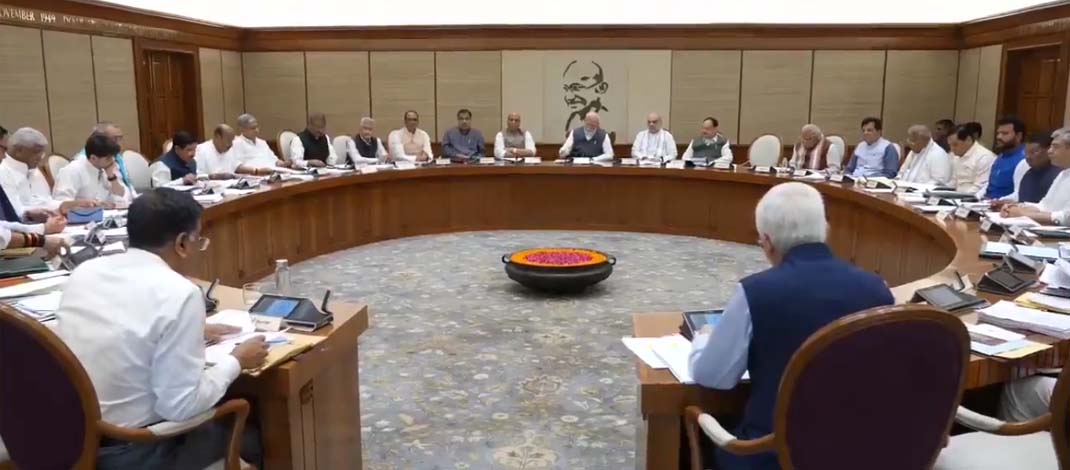- Courses
- GS Full Course 1 Year
- GS Full Course 2 Year
- GS Full Course 3 Year
- GS Full Course Till Selection
- Online Program
- GS Recorded Course
- NCERT (Recorded 500+ Hours)
- Polity Recorded Course
- Geography Recorded Course
- Economy Recorded Course
- AMAC Recorded Course
- Modern India, Post Independence & World History
- Environment Recoded Course
- Governance Recoded Course
- Science & Tech. Recoded Course
- International Relations and Internal Security Recorded Course
- Disaster Management Module Course
- Ethics Recoded Course
- Essay Recoded Course
- Current Affairs Recoded Course
- CSAT
- 5 LAYERED ARJUNA Mentorship
- Public Administration Optional
- ABOUT US
- OUR TOPPERS
- TEST SERIES
- FREE STUDY MATERIAL
- VIDEOS
- CONTACT US
Windfall Gains Tax on Domestic Crude Production and Fuel Exports Scrapped
Windfall Gains Tax on Domestic Crude Production and Fuel Exports Scrapped
03-12-2024
- On November 27, 2024, the Indian government decided to remove the windfall gains tax (WGT), which had been in place since July 2022.
- This tax included a special additional excise duty (SAED) on domestic crude oil production and a road and infrastructure cess (RIC) on the export of petrol, diesel, and aviation turbine fuel (ATF).
- The government announced these changes through notifications laid before Parliament, and the removal of the tax is effective immediately.
Background of Windfall Gains Tax:
-
Why Was the Tax Introduced? (July 1, 2022):
- The windfall gains tax was introduced after global oil prices increased sharply due to the Russia-Ukraine war.
- This conflict led to disruptions in the global supply of oil, pushing prices higher.
- The tax was introduced to collect some of the extra profits made by domestic oil producers and fuel exporters, as they benefited from higher prices.
-
What Was Covered by the Tax?
- The tax applied to:
- Domestic crude oil production (through a special excise duty).
- Exports of refined products like petrol, diesel, and ATF (through the road and infrastructure cess).
- The tax applied to:
-
Purpose of the Tax:
- Revenue generation: The government aimed to share in the extra profits of oil producers and exporters, especially private refineries that found better prices for their products in international markets.
- Ensuring domestic fuel supply: The tax also aimed to make sure that India had enough fuel by limiting fuel exports when margins were too high abroad, which led to fuel shortages in some parts of India.
- Tax Rates:
- At its highest point, the tax on domestic crude oil production was about $40 per barrel when crude oil prices were over $100 per barrel.
- The tax was reviewed every two weeks by the Finance Ministry, depending on global price changes.
Reasons for Scrapping the Windfall Gains Tax
- Over time, the government stopped earning much from the windfall gains tax because global oil prices had fallen.
- The amount of tax collected was:
- ₹25,000 crore in FY 2022-23.
- ₹13,000 crore in FY 2023-24.
- ₹6,000 crore in FY 2024-25 (so far).
- By the time the tax was removed, it had generated very little revenue.
- The global oil market, which had been very unstable after the Ukraine war, is now more stable.
- Oil prices are lower than before, making the windfall tax no longer necessary.
- Fuel supplies in India have remained stable and there are no longer concerns about fuel shortages.
- The risk of refiners focusing too much on exports, causing domestic supply issues, has reduced.
- The oil industry had raised concerns about the windfall tax, saying it was affecting their profits.
- As the tax became less important, the government decided to remove it.
Impact of Scrapping the Windfall Gains Tax
- Removing the tax will increase the profits of domestic oil producers, who were paying up to $40 per barrel when crude oil prices were high.
- The oil industry will benefit, especially when prices are lower now.
- Private refineries that export petrol, diesel, and ATF will benefit from the removal of the road and infrastructure cess on exports. This will make exports more attractive, helping refiners to sell their products abroad.
- The removal of the windfall tax is not expected to have a big immediate effect on domestic fuel prices, because the tax did not directly affect the prices consumers pay in India. However, it may help keep fuel supplies stable.
- While the tax revenue from the windfall gains tax will be lost, it was already falling, and the government is likely prepared for this change. The ₹6,000 crore expected in FY 2025 will not come in, but this will not significantly affect the government's finances.
Timeline of Key Changes to Windfall Tax
- July 1, 2022: Windfall gains tax was introduced due to high global oil and fuel prices caused by the Ukraine war.
- July 20, 2022: The windfall tax on petrol exports was reduced to zero.
- March 1, 2024: The windfall tax on diesel exports was reduced to zero.
- January 2, 2024: The windfall tax on ATF exports was reduced to zero.
- September 18, 2024: The windfall tax on domestic oil production was reduced to zero.
- November 27, 2024: The government officially removed all provisions related to the windfall gains tax.
Conclusion
The government’s decision to remove the windfall gains tax reflects changes in the global oil market. The tax was introduced during a period of high oil prices but is no longer necessary as prices have softened and fuel supplies in India are stable. Removing the tax will help the oil industry and exporters, while also ensuring that the domestic fuel market remains well-supplied. The move is also expected to provide financial relief to oil producers and exporters, as the tax had become less effective over time.



